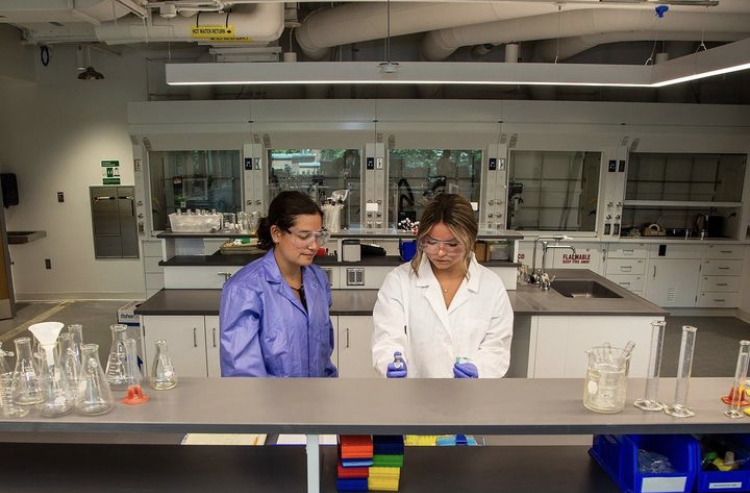
NASA is making big moves to close the gender gap in STEM.
On Wednesday the agency announced it will award more than $5 million in funding to seven women’s colleges and universities, which will be used to develop programs to support women in STEM.
“This is a very exciting first,” said NASA Deputy Administrator Pam Melroy in a statement. “We’re making strides to close the pervasive gender gap in STEM, and women’s colleges and universities are well-positioned to help drive that positive change.”
The award recipients are: Agnes Scott College in Decatur, Georgia; Alverno College in Milwaukee, Wisconsin; Cedar Crest College in Allentown, Pennsylvania; College of Saint Mary in Omaha, Nebraska; Salem Academy and College in Winston-Salem, North Carolina; Simmons University in Boston, Massachusetts; and Smith College in Northampton, Massachusetts.
The initiative was created in response to President Joe Biden’s 2021 executive order to expand diversity, equity, inclusion and accessibility in the workforce. “The Federal Government must strengthen its ability to recruit, hire, develop, promote and retain our nation’s talent and remove barriers to equal opportunity,” the order states.
Because NASA is a federal government agency – and because 26% of NASA’s scientists and engineers are women – Biden’s executive order directly applies to it. The opportunity for women’s colleges was created by NASA’s Minority University Research and Education Project (MUREP). According to its website, awards administered by MUREP “assist NASA in meeting the goal of a diverse workforce” and “provide NASA-specific knowledge and skills to learners who have historically been underrepresented and underserved in STEM.”
Earlier this year, NASA awarded $11.7 million to eight historically Black colleges to develop programs for Black students in STEM. For its most recent awards, the agency asked women’s colleges to develop similar programs encircling academics, research, student support, college prep, career prep and mentoring.
According to data from the National Center of Education Statistics, women earn 59% of undergraduate degrees compared with 41% of men, but only 10% of women’s degrees are in a STEM field. This rings true in the workforce as well – while women represent about 47% of all workers, they only represent 27% of workers in STEM jobs, according to the U.S. Census Bureau.
“It’s more important than ever [that] we have brilliant, enthusiastic people entering the workforce and ready to take on the ambitious plans and challenges ahead,” Melroy said.
Each institution’s proposal – developed with an awareness of gender, race, sexual orientation, socio-economic status and other relevant identities – is listed on NASA’s website.


![With only two recipients selected every year, this scholarship will be competitive. [Credit: Wikimedia Commons]](https://thestoryexchange.org/app/uploads/2021/01/IMG_5060-150x150.jpg)
